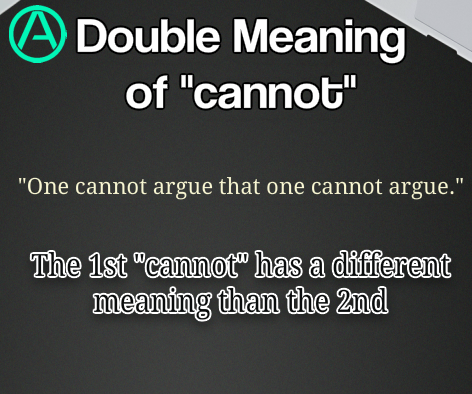 Something important I realized yesterday is the fact that “cannot” is used in two different ways when talking about what the a priori of argumentation[1]Read my post about the correct definition of the a priori of argumentation. is, “One cannot argue that one cannot argue,”and how this is imprecise.
Something important I realized yesterday is the fact that “cannot” is used in two different ways when talking about what the a priori of argumentation[1]Read my post about the correct definition of the a priori of argumentation. is, “One cannot argue that one cannot argue,”and how this is imprecise.
The first “cannot” means “cannot consistently,” and not “literally cannot.” One literally can argue one cannot argue, but one would be performing a dialectical contradiction, i.e., a performative contradiction.
The second “cannot” means “literally cannot.” This is true because one literally cannot argue consistently that “one can consistently argue that one cannot argue.”
A better definition of the a priori of argumentation is “one cannot consistently argue that one cannot argue.”
Instances where people use the same words with different meanings can cause confusion, mistaken conclusions, and a misunderstanding of the claims. This needs to be avoided if we are to be precise and careful with our arguments and thinking.
References
| ↑1 | Read my post about the correct definition of the a priori of argumentation. |
|---|
Be First to Comment